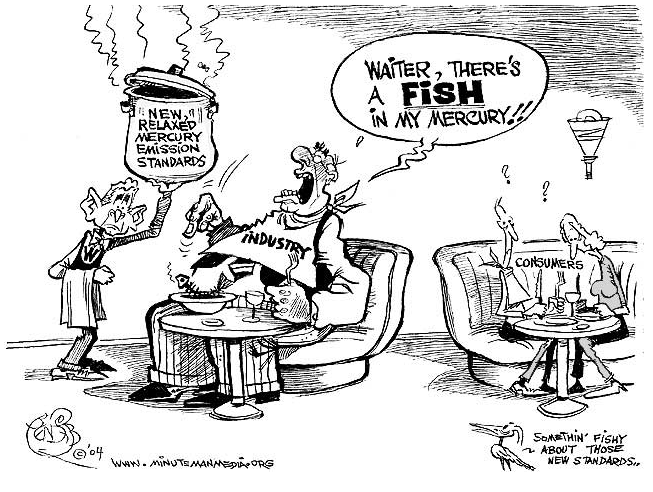
Rethinking fish consumption
Many times when I tell someone that I’m vegan, they say things like “good for you” or “I’m pretty much vegetarian but I eat fish.” I politely correct them and let them know that people who eat fish but not land animals are “pescetarian”. Several people have made this comment to me and so I started to wonder, what exactly is in these fish they are eating? While I choose not to eat fish, I wondered if this was really a healthier lifestyle than that of a true carnivore. So I started to do some research … and, um … you couldn’t get me to ingest fish purely because of the levels of toxins they contain not just because I don’t want them to suffer and die just to fill up my dinner plate.
Our beautiful blue sea is not so clean
Let me explain. In a nutshell, people treat the ocean like a giant garbage dumpster. It is a convenient place to put toxic waste, hazardous materials, and even sewage in some countries. What is out of sight is also out of mind (for most people). This human behavior has infected sea creatures who are trying to do nothing more than just mind their own business! But humans don’t care. They don’t think this behavior effects them. But studies are emerging that show not only is our toxic behavior threatening animals in the ocean, lakes, streams, etc. it is causing big problem in the humans that eat those fish.
Two major chemicals found in fish are dioxins and mercury. Dioxins are chemicals produced by humans in industrial, municipal, and domestic incineration processes. They have also been found in cigarette smoke, home-heating systems, and exhaust from cars running on leaded gasoline or unleaded gasoline, and diesel fuel.
However most human dioxin exposure comes from eating fish.1
Studies have shown that even minimal amounts of exposure to dioxins can decrease sperm count, suppress the immune system, cause birth defects, endometriosis, and learning problems.2 Mercury is a known cardiac toxin meaning that it is very bad for your heart and can cause heart attacks. It is also a know neuro toxin thought to harm child development.

Bendib Cartoons
So how much of these dioxins and mercury really exist in fish?
The World Health Organization says that a person should not ingest more than one trillionth of a gram of dioxin per day. Just one piece of fish contains way more than that! The Food and Chemical Toxicology journal says that “If someone depends on fish as a healthy alternative to meat, they would exceed the proposed health-based guidelines for industrial contaminant intake.”3
You might hear parents worried about vaccinating their children because vaccines used to contain mercury. I don’t know but some vaccines may still contain mercury. I’m not a mercury-in-vaccines-kind-of expert. However these parents who might be worried, should consider that one serving of tuna (1/2 a can) is equivalent to being injected by 100 vaccines containing mercury.4
Some people may ask, “is wild-caught fish better than factory-farmed fish”? Need I say that farming anything in today’s industrialized structure is typically not healthy for the animals or the people who eat them. Fish farming is not different. In this particular case, factory-farmed fish have more of the toxins we discussed than wild-caught fish. My analysis is that if wild-caught fish are laden with dioxin and mercury then I sure as heck wouldn’t go near factory farmed fish.
But what about the health benefits?
This is usually the argument I get. Even after people hear about the toxins, they still think that fish contain some magic oils humans need for brain development. Yes, it is true, fish can be a good source of Omega 3 which has proven to help with vision, heighten problem-solving skills and make people smarter. Now who doesn’t want to see better, fix the world’s problems, and get smarter?
We don’t need to eat fish to get these super powers. In fact the risk of toxin exposure in eating fish outweighs that of not eating fish. When eating to live well, why accept any risk at all? By getting Omega 3 from plant sources we can get the nutrients we need without the risk. Fish get their Omega 3 from plants and we can too.
Foods that contain appreciable amounts of alpha-linolenic acid (ALA), the vegetarian omega-3:
- Canola oil
- English walnuts
- Flax oil*
- Flax seed (ground)*
- Hemp beverages (hemp “milk”)
- Hemp oil*
- Hemp seed / hemp nut (ground)*
- Olive oil
- Leafy green vegetables (small amounts, but a good omega-3 to omega-6 ratio)
- Pumpkin seeds
- Soybeans
- Soybean oil
- Supplements
*highest sources5
Personally I choose to take algae-derived DHA every day and I sprinkle some flax seed in between Earth Balance and sugar-free jam on my English muffin in the morning. Mmmmm, good!
What does all this mean?
People who don’t eat animals have very low levels of industrial toxins in their blood. From the day you decide not to eat fish, the numbers of toxins in your body will begin to fall. That is something good for you, the fish, and the ocean. Um, and if you’re wondering, yes, fish are animals. They have vertebrae, circulatory systems, and a brain. They are clearly not plants or single celled organisms. So let them go about their merry business. We don’t need to eat them and I’m sure as heck they don’t appreciate us eating them!
Notes:
1. Dr. Michael Greger, Latest in Clinical Nutrition 2008, www.drgreger.org
2. About Digest on Dioxins (not cited but used as reference), http://www.greenfacts.org/en/dioxins/about-dioxins.htm#1B
3. Food and Chemical Toxicology 45 (2007) pages 2279-2286.
4. Dr. Michael Greger, Latest in Clinical Nutrition 2008, www.drgreger.org
5. Vegetarian Omega-3 Sources: The Best Fish-Free Fatty Acids – www.vegetariancuisine.suite101.com
6. Scientific Facts on Dioxins (not cited but used as reference), http://www.greenfacts.org/en/dioxins/l-2/dioxins-1.htm


















